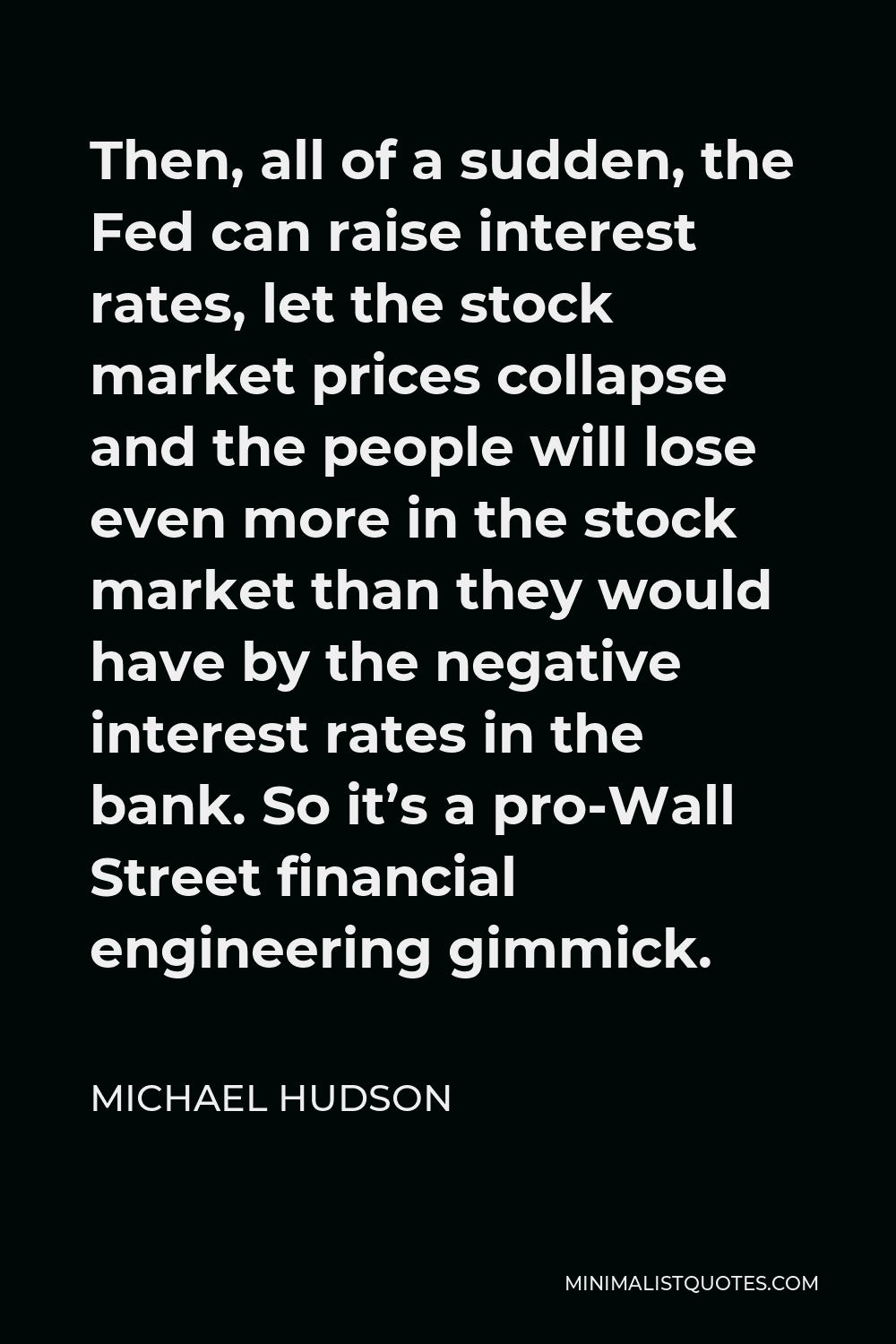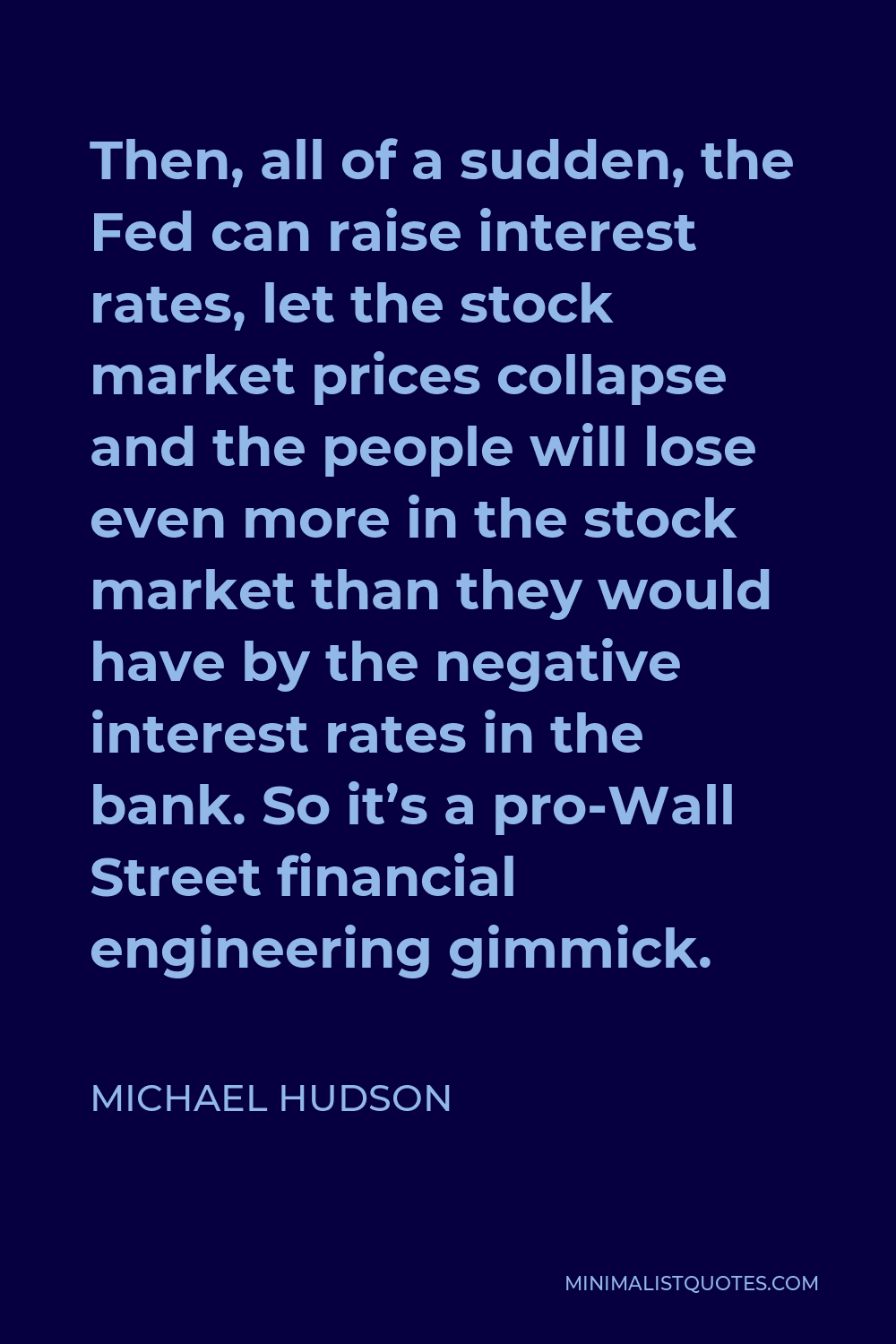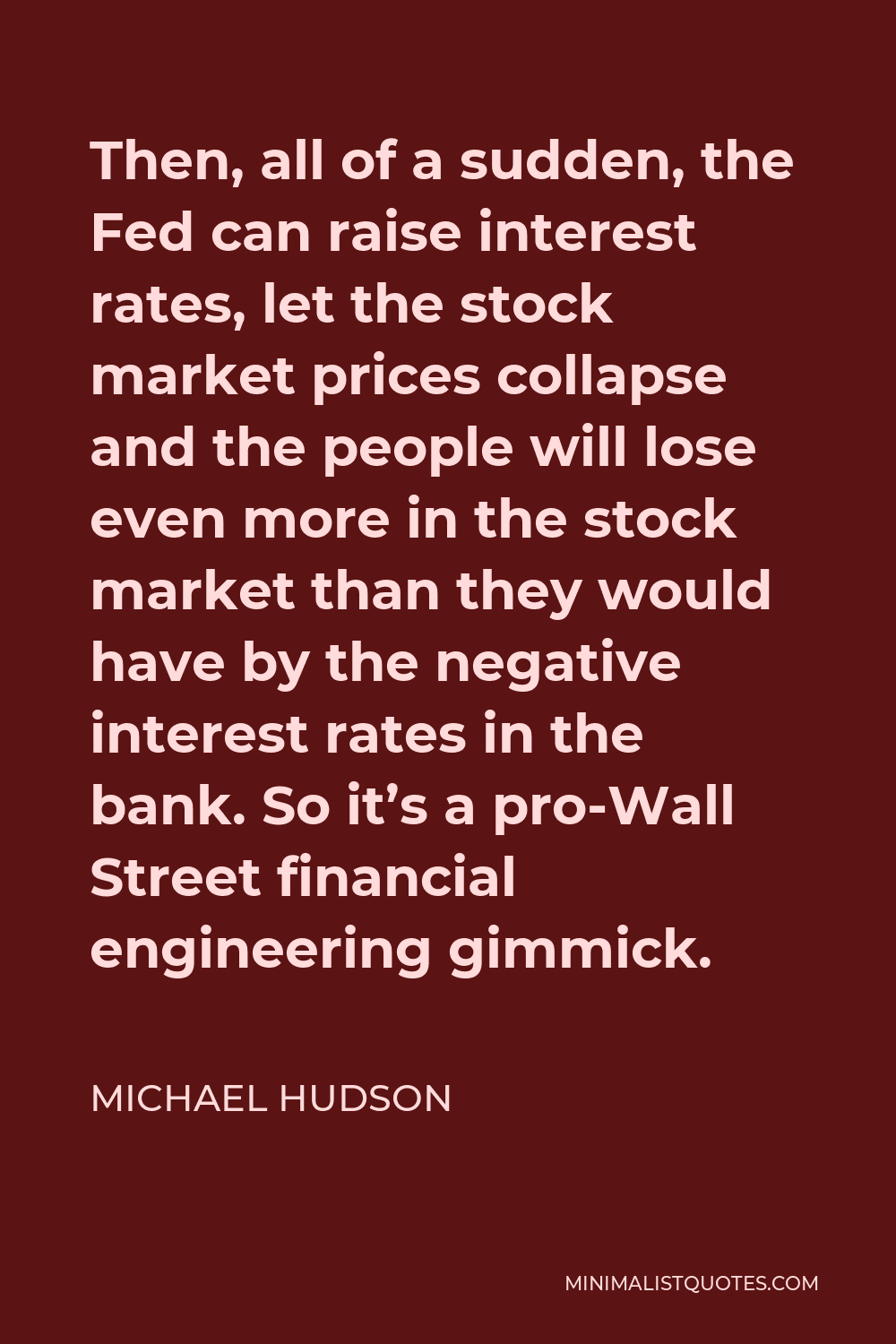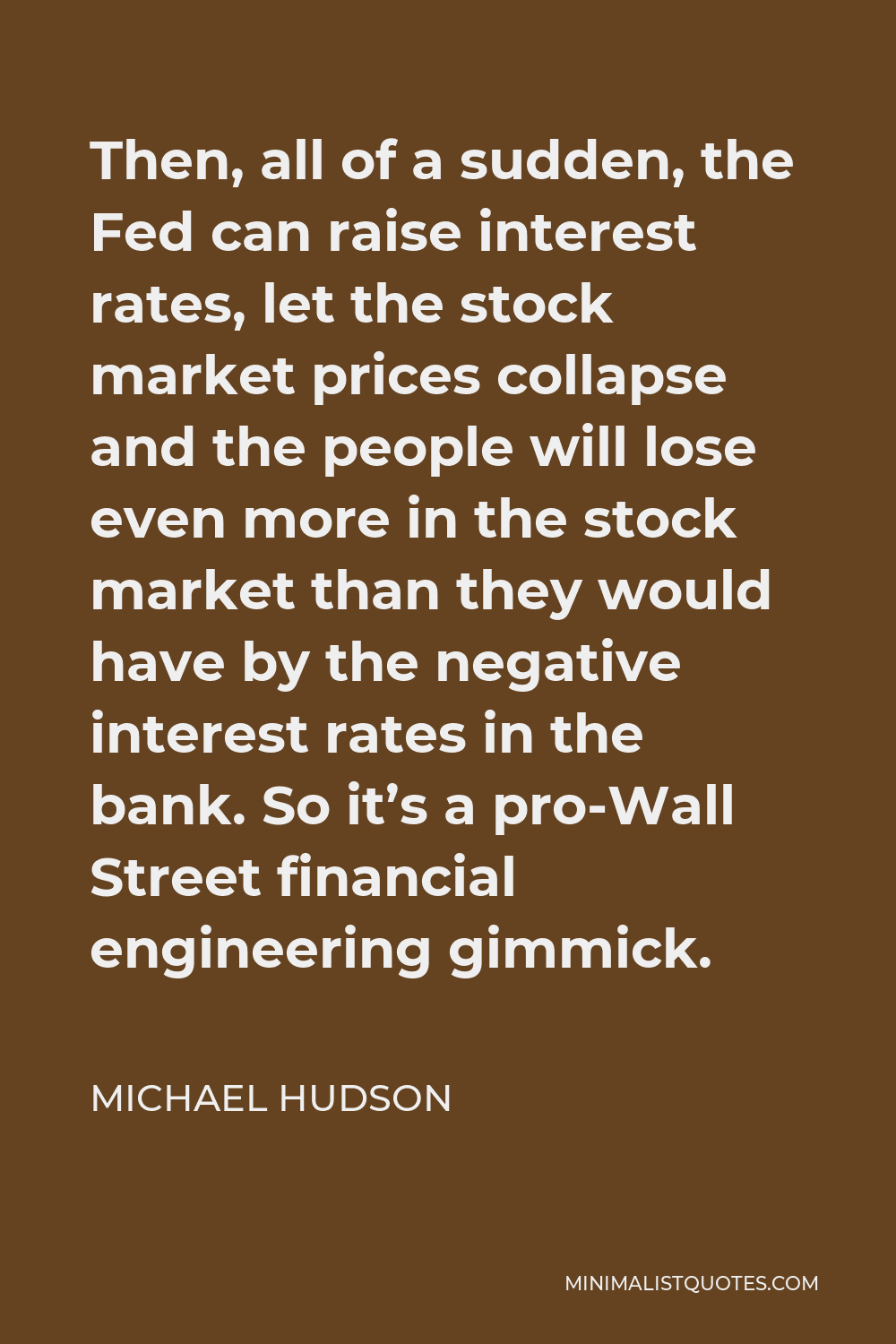We’re still in the collapse that began after 2008. There’s not a new collapse, there hasn’t been a recovery.
MICHAEL HUDSONThen, all of a sudden, the Fed can raise interest rates, let the stock market prices collapse and the people will lose even more in the stock market than they would have by the negative interest rates in the bank. So it’s a pro-Wall Street financial engineering gimmick.
More Michael Hudson Quotes
-





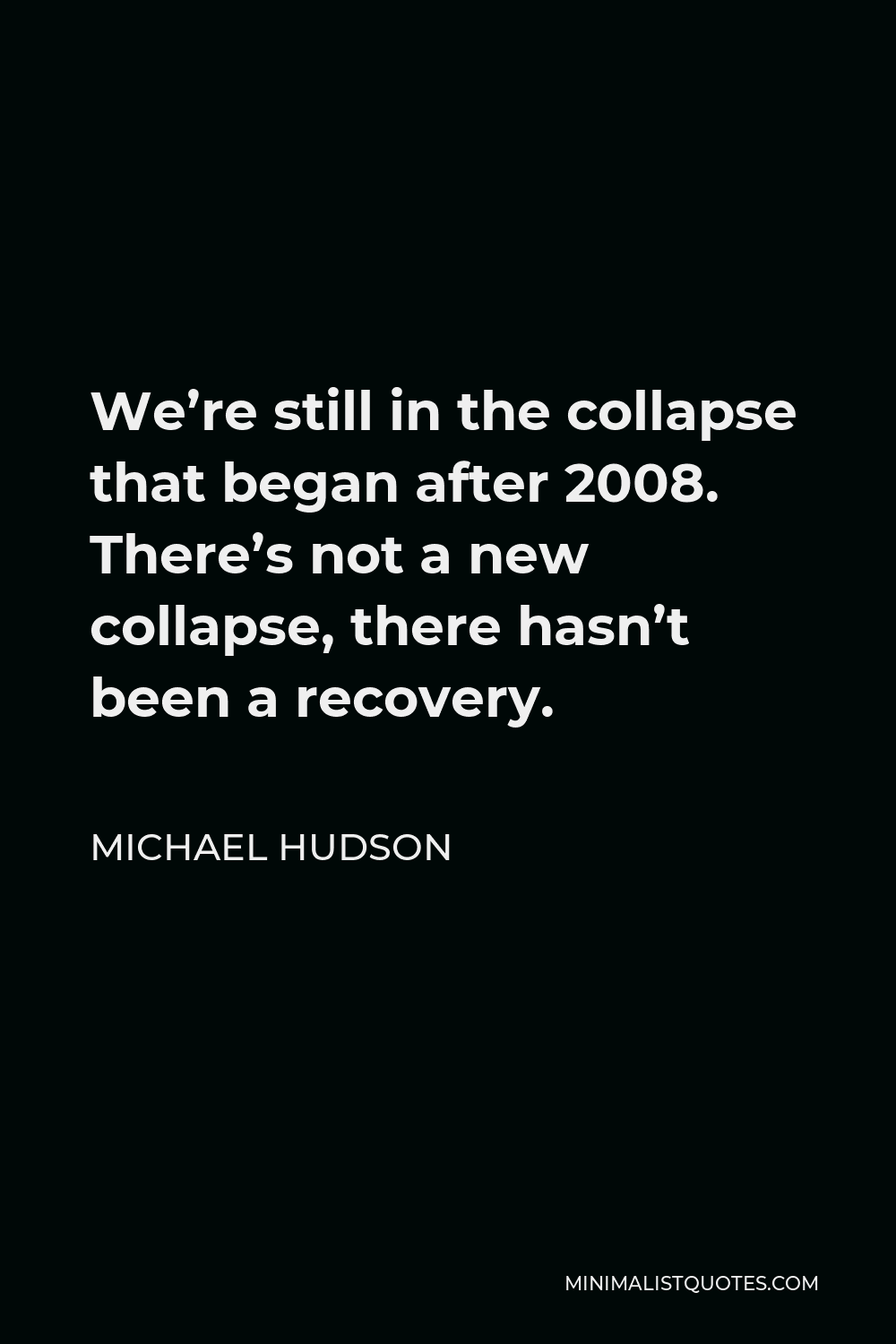
-





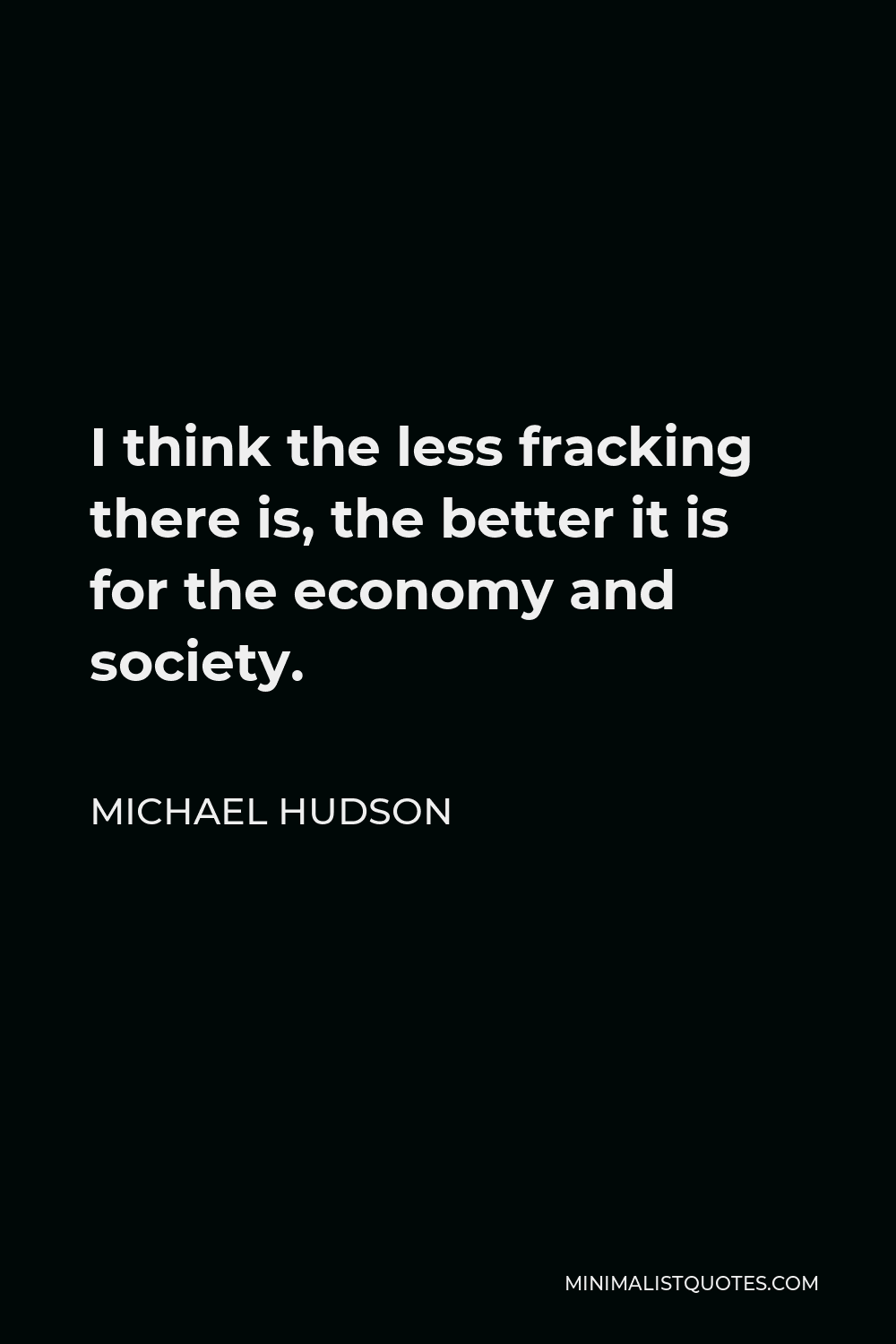
I think the less fracking there is, the better it is for the economy and society.
MICHAEL HUDSON -






Mr. Trump wants to turn the U.S. economy into the kind of real estate development that has made him so rich in New York.
MICHAEL HUDSON -






Today, people are having to spend so much of their money, to acquire a house and to get an education that they don’t have enough to spend on goods and services, except by running into yet more debt on their credit cards and other borrowings.
MICHAEL HUDSON -






Much higher cost for all the infrastructure that he’s proposing. You could call Trump’s plan “public investment to create private profit”. That’s really his plan in a summary.
MICHAEL HUDSON -





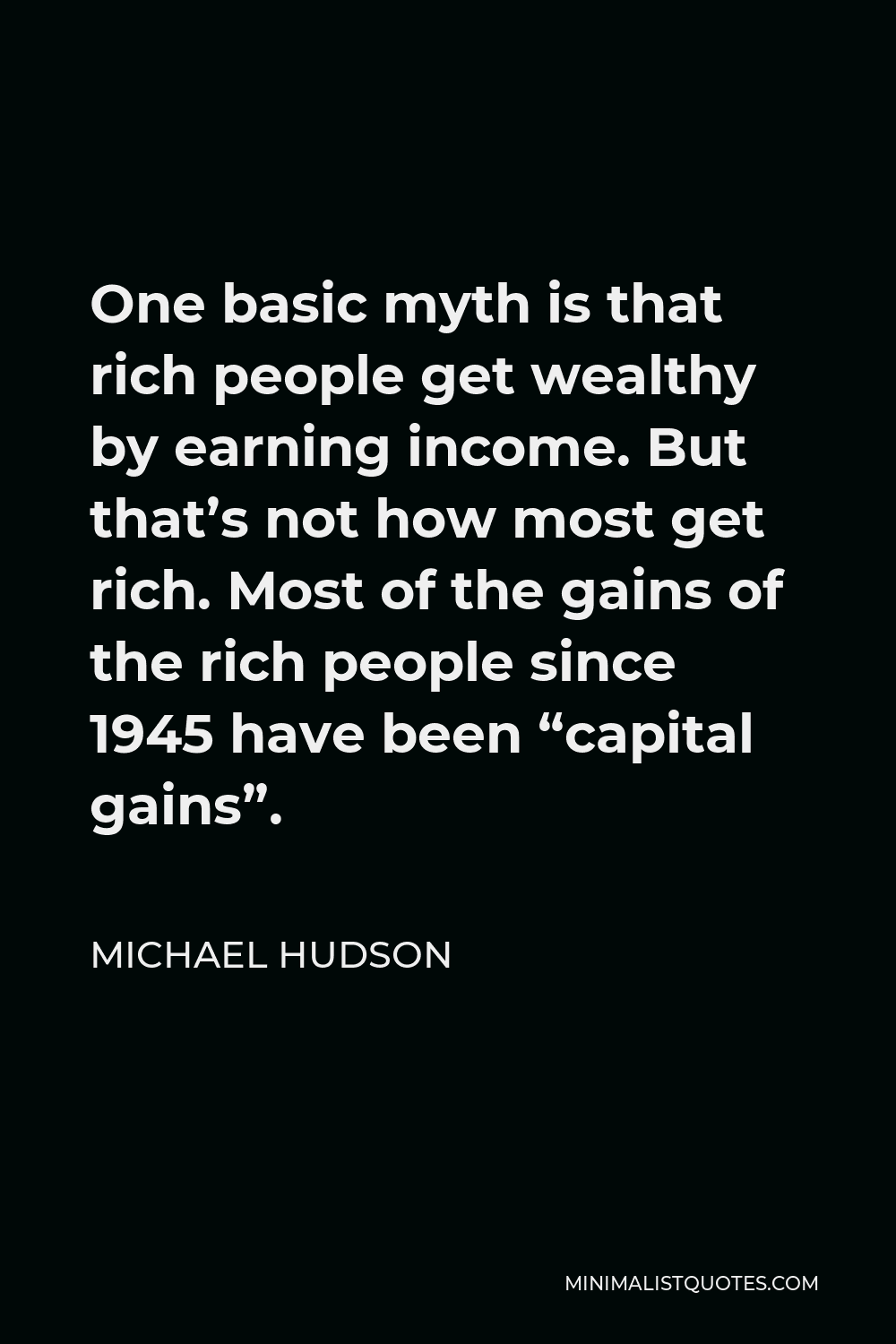
One basic myth is that rich people get wealthy by earning income. But that’s not how most get rich. Most of the gains of the rich people since 1945 have been “capital gains”.
MICHAEL HUDSON -






The one sure mark of a con, though, is the promise of free money.
MICHAEL HUDSON -






There are so many currency exchange rate problems that people are buying gold as a safe haven. Right now, gold looks like a safe haven if international exchange rates break down.
MICHAEL HUDSON -






The aim of promoting low down payments is to push prices back up so that fewer houses are going to be in negative equity and fewer people are going to walk away from the mortgages. That will save the from taking a loss on their junk mortgage loans.
MICHAEL HUDSON -





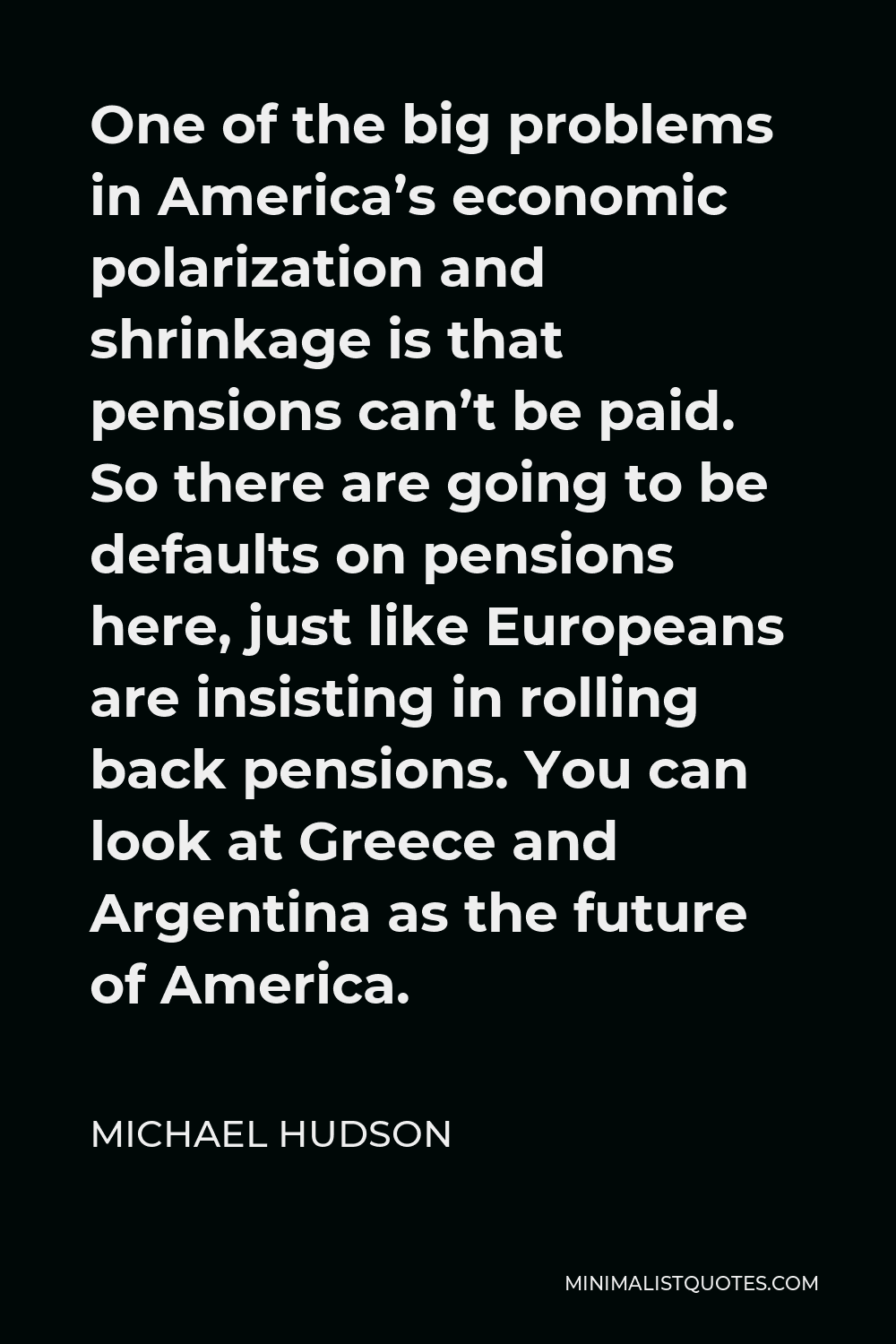
One of the big problems in America’s economic polarization and shrinkage is that pensions can’t be paid. So there are going to be defaults on pensions here, just like Europeans are insisting in rolling back pensions. You can look at Greece and Argentina as the future of America.
MICHAEL HUDSON -





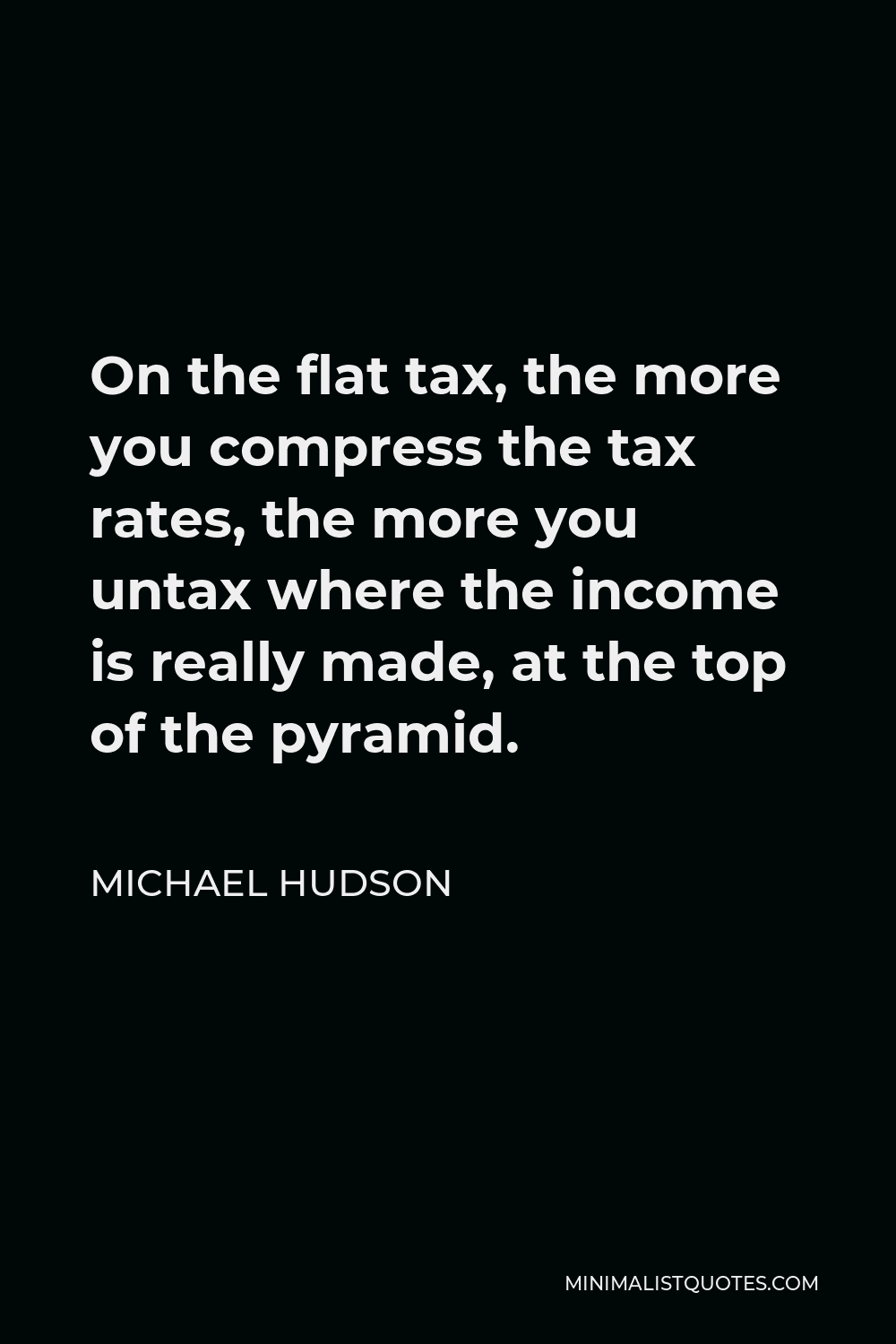
On the flat tax, the more you compress the tax rates, the more you untax where the income is really made, at the top of the pyramid.
MICHAEL HUDSON -





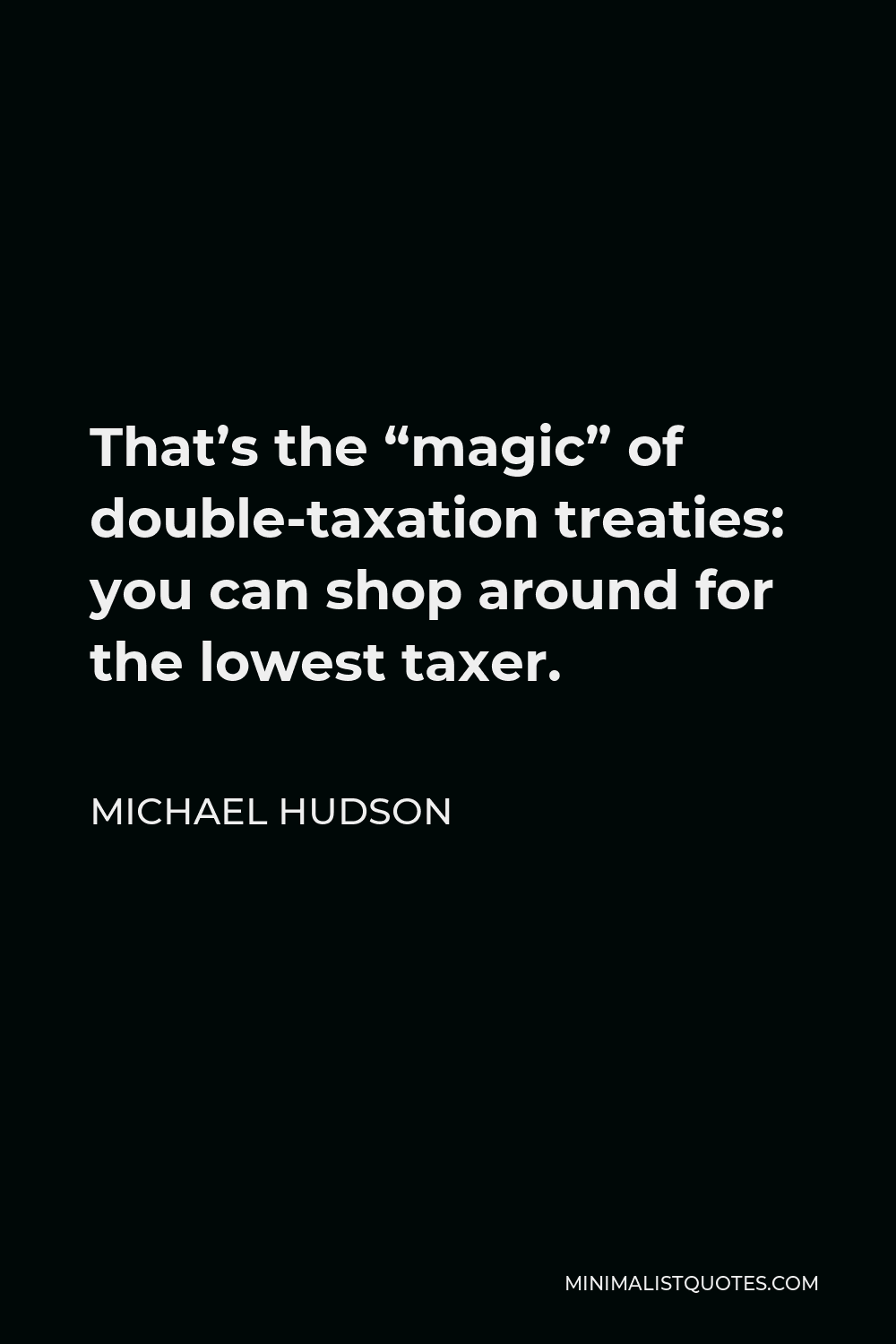
That’s the “magic” of double-taxation treaties: you can shop around for the lowest taxer.
MICHAEL HUDSON -





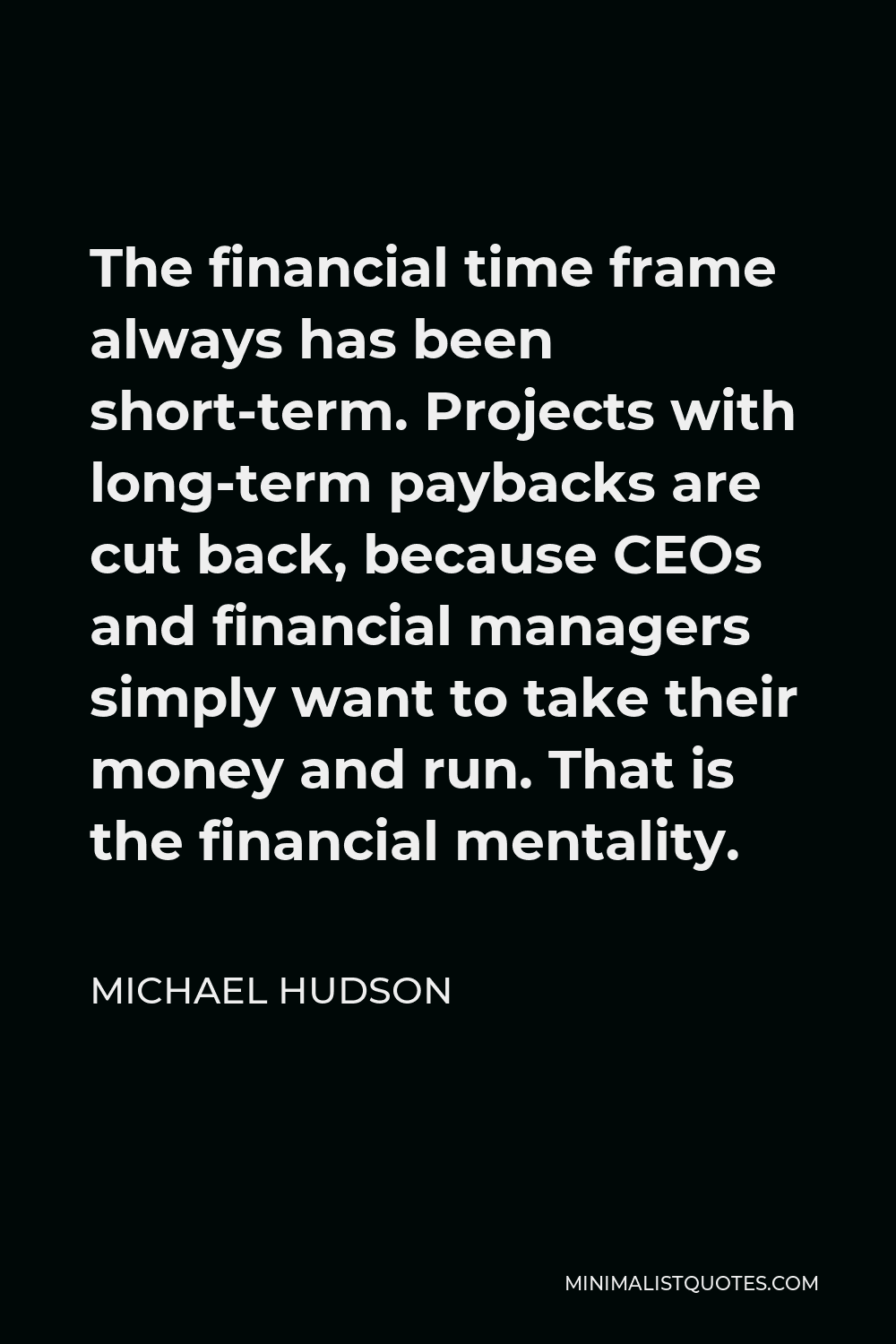
The financial time frame always has been short-term. Projects with long-term paybacks are cut back, because CEOs and financial managers simply want to take their money and run. That is the financial mentality.
MICHAEL HUDSON -





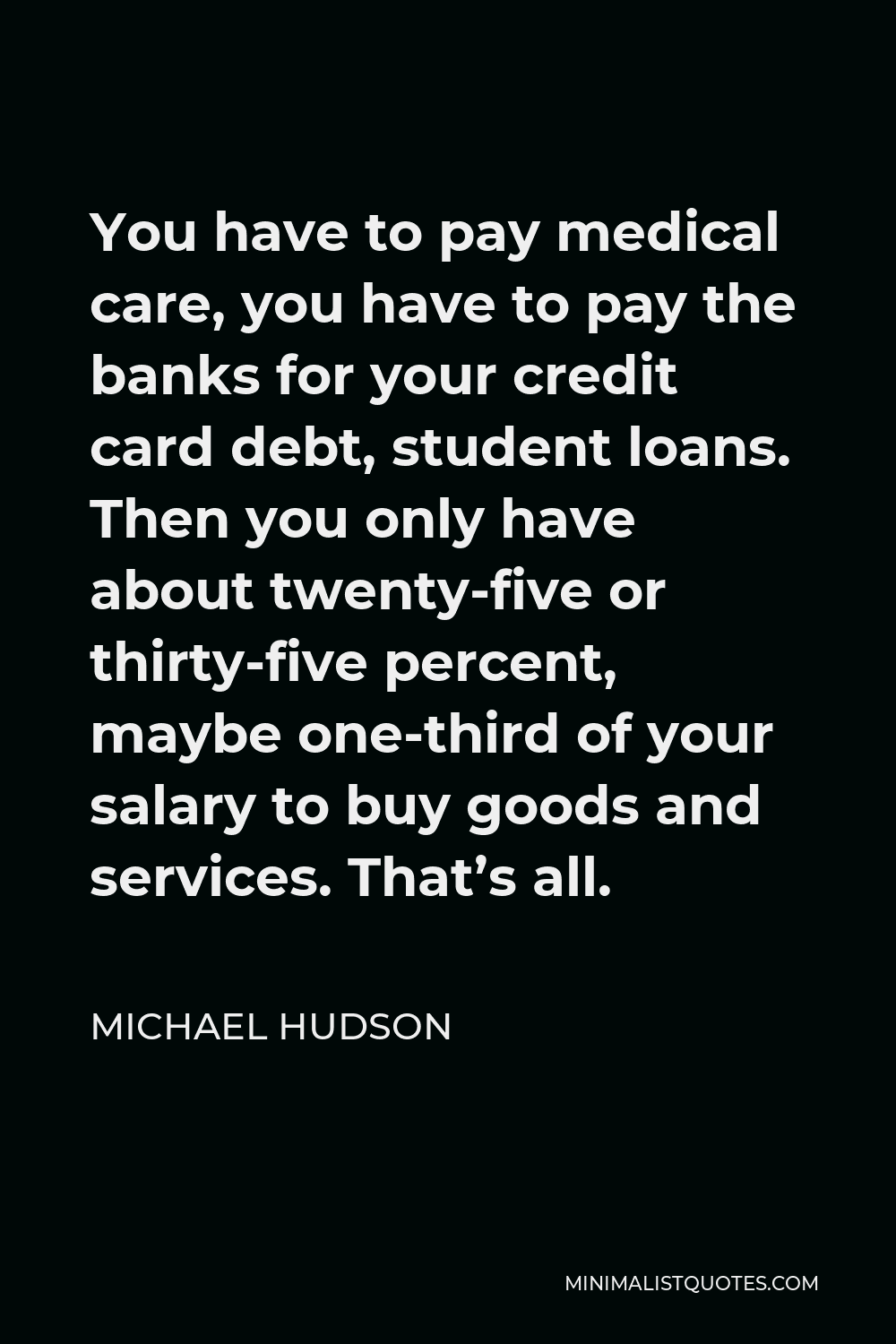
You have to pay medical care, you have to pay the banks for your credit card debt, student loans. Then you only have about twenty-five or thirty-five percent, maybe one-third of your salary to buy goods and services. That’s all.
MICHAEL HUDSON -







I guess the main thing that came out of the Panama Papers was that Ukrainian President Poroshenko had promised to divest of his chocolate company and instead, he simply moved it into an offshore account.
MICHAEL HUDSON -





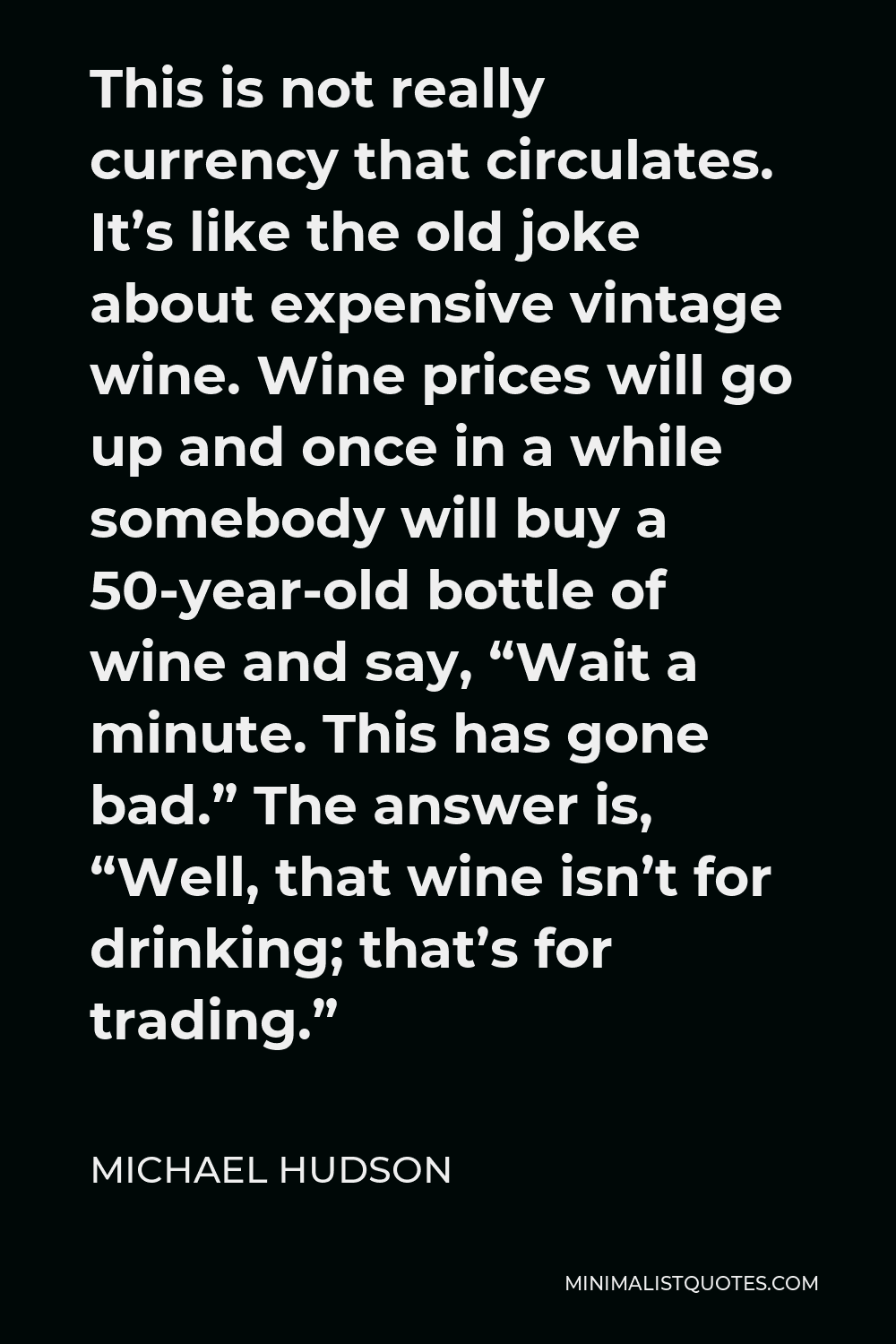
This is not really currency that circulates. It’s like the old joke about expensive vintage wine. Wine prices will go up and once in a while somebody will buy a 50-year-old bottle of wine and say, “Wait a minute. This has gone bad.” The answer is, “Well, that wine isn’t for drinking; that’s for trading.”
MICHAEL HUDSON
